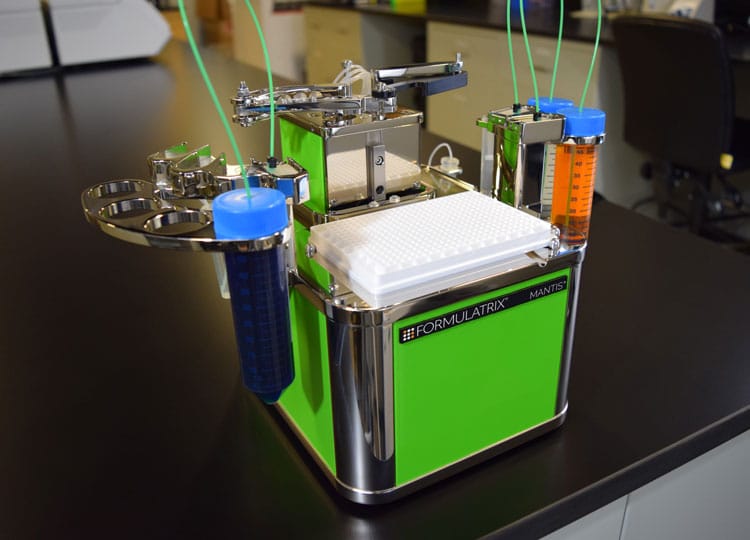About Organoid Culture
Organoids allow researchers to study tissue biology with remarkable fidelity. By providing a three-dimensional in vitro culture system demonstrating key features of a specific organ, these complex, multicellular structures deliver physiologically relevant insight to support many fields of research. A major limitation of conventional organoid culture is that it is often a labor-intensive, high-touch process, requiring highly specialized personnel to deliver only moderate throughput.
Working with MANTIS
Using the MANTIS® liquid dispenser from FORMULATRIX, researchers within the Shalek laboratory at the Massachusetts Institute of Technology (MIT) were able to rapidly screen >450 small molecules at a range of doses for their capacity to enhance differentiation of Paneth cells within small intestinal organoids. Delivering a previously inaccessible level of throughput, the MANTIS was pivotal to advance understanding of multiple perturbations of limited sample material.

MIT researchers have shown the miniaturization approach afforded by the MANTIS to have proven utility in studying multiple perturbations of limited material. This has relevance to testing organoids derived from a single patient biopsy and opens up many new opportunities for personalized medicine. As technologies evolve, the incorporation of additional modes of measurement will improve model fidelity further still. The MANTIS is key to enable the greater scale these will demand.
